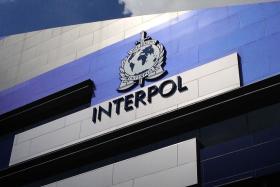Well-educated S’poreans among people trafficked to work in scam centres: United Nations report
They previously held professional jobs, have graduate or postgraduate degrees, come from countries including Singapore and are among the new types of victims trafficked abroad to work in scam centres.
This was one of the findings from a report by the Office of the United Nations High Commissioner for Human Rights (OHCHR) released on Aug 29.
It said hundreds of thousands of people are currently being forced by criminal gangs to work in scam and illegal gambling centres in South-east Asia.
Victims came from places like Africa, the Middle East, China, and across South-east Asia, including Singapore.
The report said illegal gambling operations had sprouted across South-east Asia from 2014, with scam operations in the same region sharply increasing since 2016.
It said scams flourished when the Covid-19 pandemic hit, with many people stuck at home and spending more time online, making them easier targets.
As the region reopened in 2021, traffickers took advantage of those who had lost their jobs because of the pandemic and were desperate for work.
Luring them with the promise of stable jobs overseas, the traffickers arranged for unknowing victims to travel to countries like Thailand and Myanmar, before smuggling them across the borders to Laos and Cambodia.
They were then taken to scam centres.
Once inside the compounds, some of which are fenced with barbed wire, the victims’ passports are confiscated, and they are forced to work as scammers, with many defrauding their own countrymen.
Those who try to escape are often beaten before being forced back to work.
In June, at least four Singaporeans were rescued from one such compound in the Philippines’ capital Manila.
They were part of nearly 3,000 suspected trafficking victims rescued by the Philippine police on June 26.
The victims were believed to have been promised jobs at a licensed gambling operator, then forced into running love and cryptocurrency scams.
On Monday, The New York Times reported on the proliferation of scam syndicates in Cambodia and how the authorities had rescued 17 foreign nationals from India, China, Singapore, Malaysia, Indonesia and Thailand from compounds there since January.
In Singapore, the 10 foreign nationals charged in relation to the billion-dollar money laundering case are allegedly involved in laundering the proceeds of their organised crime activities overseas. They are linked to scams and online gambling, said the Singapore Police Force on Aug 16.
The OHCHR report said that while trafficking cases in South-east Asia used to involve mostly victims who had lower educational qualifications and who worked in low-wage jobs, the latest findings show the trend is now to include those who are well-educated, computer-literate and multilingual.
This is so they can trick scam victims more effectively.
It added that most of the trafficking victims were men, though there were women and young persons as well.
There have been reports of trafficking victims being sold and moved from one scam centre to another.
On Singaporeans being trafficked, a UN Human Rights spokesman told The Straits Times the OHCHR report had relied on credible information produced by partners in UN agencies and civil society organisations (CSOs), and official data provided by governments.
CSOs are non-state, not-for-profit, voluntary entities formed by people in the social sphere that are separate from the state and the market. They include community-based organisations and non-governmental organisations.
The spokesman cited the reply by Minister for Home Affairs K. Shanmugam to a parliamentary question in September 2022.
The minister was asked whether there had been reports of Singaporeans suspected of being kidnapped to work for scam syndicates in Cambodia and Myanmar.
Mr Shanmugam had then told Parliament that since 2021, there had been only one report by a complainant who claimed he had heard from another party there were Singaporean victims possibly being kept against their will in Myanmar to work for scam syndicates there.
He added that the complainant said he had not personally spoken to those Singaporeans and did not have details of their identities.
The case was referred by the Singapore police to their counterparts in Myanmar for assistance.
The UN spokesman added that in 2022, CSOs involved in tracking the scam trafficking situation had reported that Singaporean victims were being held in compounds in Cambodia.
The spokesman said: “On the basis of these credible reports, we have indicated in the briefing paper that there are Singaporeans among the victims of this region-wide trafficking situation.”
The report said that while the victims had indeed perpetrated scams, they had done so under the threat of violence and abuse.
Many had been subjected to torture and sexual violence, it said.
The report urged the implementation of a non-punishment principle for those who were trafficked, saying they should not be prosecuted with immigration offences, money laundering or conspiracy to commit organised crime.
UN High Commissioner for Human Rights Volker Turk said: “People who are coerced into working in these scamming operations endure inhumane treatment while being forced to carry out crimes. They are victims. They are not criminals.
“In continuing to call for justice for those who have been defrauded through online criminality, we must not forget that this complex phenomenon has two sets of victims.”
Get The New Paper on your phone with the free TNP app. Download from the Apple App Store or Google Play Store now


